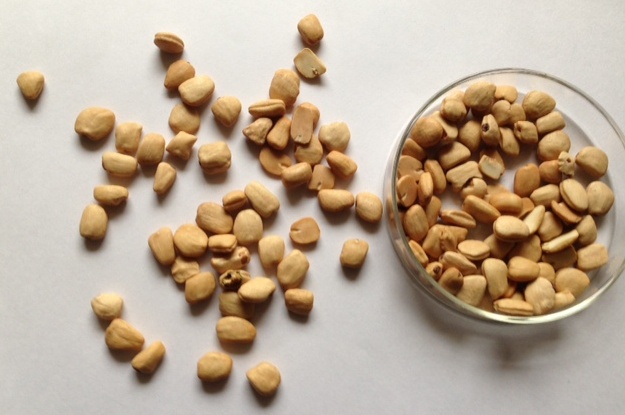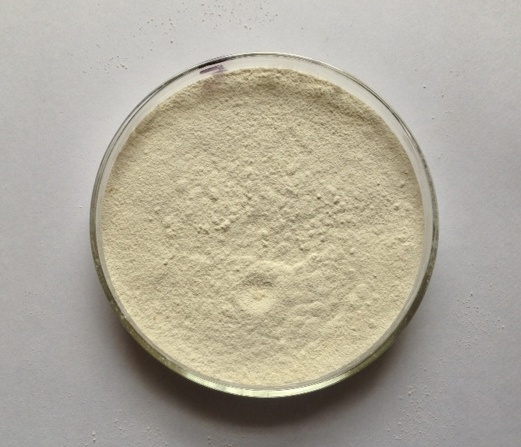
Uses of Tamarind Gum Powder in Food, Pet Food, Textile, Mining & Pharmaceutical Industries
Tamarind Gum and Tamarind Gum Powder Industrial Applications
Tamarind gum is obtained from endosperm of the seeds of the tamarind tree (Tamarindus indica linn) and has application in paper, textile industry, food etc. In the food industry it is used as an emulsifier and a stabilizer.
Molecules of tamarind gum weigh between the ranges of 250000 and 650000 molar mass. It spreads easily in water and turns to a gluey fluid when heated up, in acidic form and thermal resistant solution.
The structure of tamarind gum is suggested to be a main chain of cellulose with many branching at the O-6 positions and short side chains with one or two D-xylopyranosyl capped with D-galactopyranosyl, L-arabinofuranosyl or D-xylopyranosyl units.
Preparation of Tamarind Gum Powder from Tamarind Seeds or Kernel

Tamarind kernel powder is obtained from tamarind seeds. Various grades of tamarind seeds are methodically ground to powder at the same time conserving their nutritious properties. These seeds are then roasted and decorticated. Seeds kernels are sorted by color to obtain tamarind kernel powder. The tamarinds seeds are made up of 35% Husk and 65% White Kernel. The white kernel obtained are used to produce tamarind kernel powder.
Tamarind kernel powder is composed of
· Lipids (6 – 10%)
· Proteins (15 – 20%)
· Galactoxyloglucan polysaccharide (55 – 65%)
· Little amounts of Fiber, Sugar etc.
Applications of Tamarind Gum Powder
Tamarind gum powder has various applications in the following industries
Food Processing Industry
In the food industry, tamarind gum powder is used in the manufacturing of ketchups, sauces, baked food, meat product, instant noodles and ice cream. It is also used on pet food as an additive. One of the souring agent in Indian curries is tamarind pulp. Due to its sugar and acid content tamarind pulp is utilized in kitchens for curries syrup and variety of other food beverages.
Pet Food
 Tamarind kernel powder has better ability to control viscosities when added in solutions and hence makes up for a great viscosifier for addition in pet foods. It is an excellent thickening agent used in manufacture of canned pet foods processed for cats and dogs. Moreover the powder is also nutritious and contains fibers which can aid for improved digestion in the pets.
Tamarind kernel powder has better ability to control viscosities when added in solutions and hence makes up for a great viscosifier for addition in pet foods. It is an excellent thickening agent used in manufacture of canned pet foods processed for cats and dogs. Moreover the powder is also nutritious and contains fibers which can aid for improved digestion in the pets.
Textile Industry
In the textile industry, tamarind gum powder is used in textile sizing and textile thickeners. The good thickening property of tamarind gum powder makes is an excellent thickening agent for textile industries. Tamarind kernel powder is also used for textile sizing purposes.
Mining Industry
Due to its brilliant property of a soil stabilizer, tamarind gum powder is widely used in mining. The specific areas of its application in mining are the oil drilling and gas industries.
Pharmaceutical Industry
Tamarind gum powder has the following Pharmaceutical applications;
- Dissolution improvement
Tamarind gum powder is assessed for its appropriateness as a carrier to better dissolution rate of poor water-soluble drug celecoxcib.
- Nasal Mucoadhesion
Tamarind gum powder is used for nasal mucoadhesion studies in power formularization.
- Bioadhesive Tablet
Tamarind gum powder is used in manufacture of bioadhesive tablets. When evaluated result showed that lactoferrin tablets prepared with tamarind gum powder had the longest residence time in oral cavity compared to xanthan gum but bad taste gradually developed.
As we can see above, tamarind gum powder is derived from the seeds of tamarind tree, whose origin is India.
Tamarind gum powder has nutritious properties which makes it applicable in different types of industries. These extensive range of industries include food industry, textile industry, mining industry, pharmaceutical industry, health care, tobacco industry, explosives and others. To know more about applications of tamarind kernel powder please visits this https://www.altrafine.com/tamarind_kernel_powder_applications.html link.
This Article has been written & posted by Ajit Patel.







